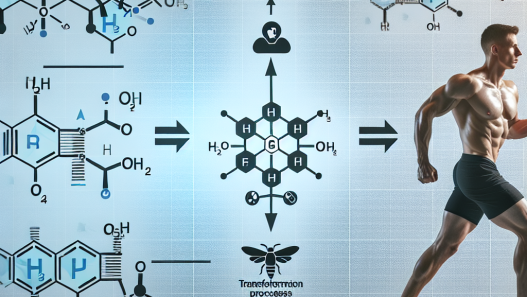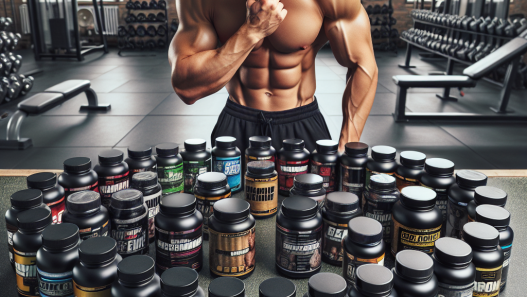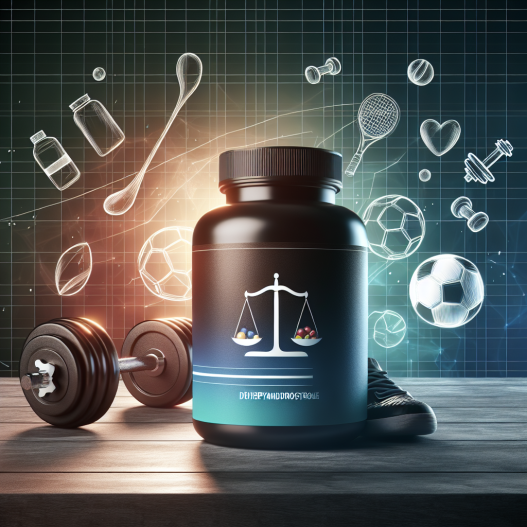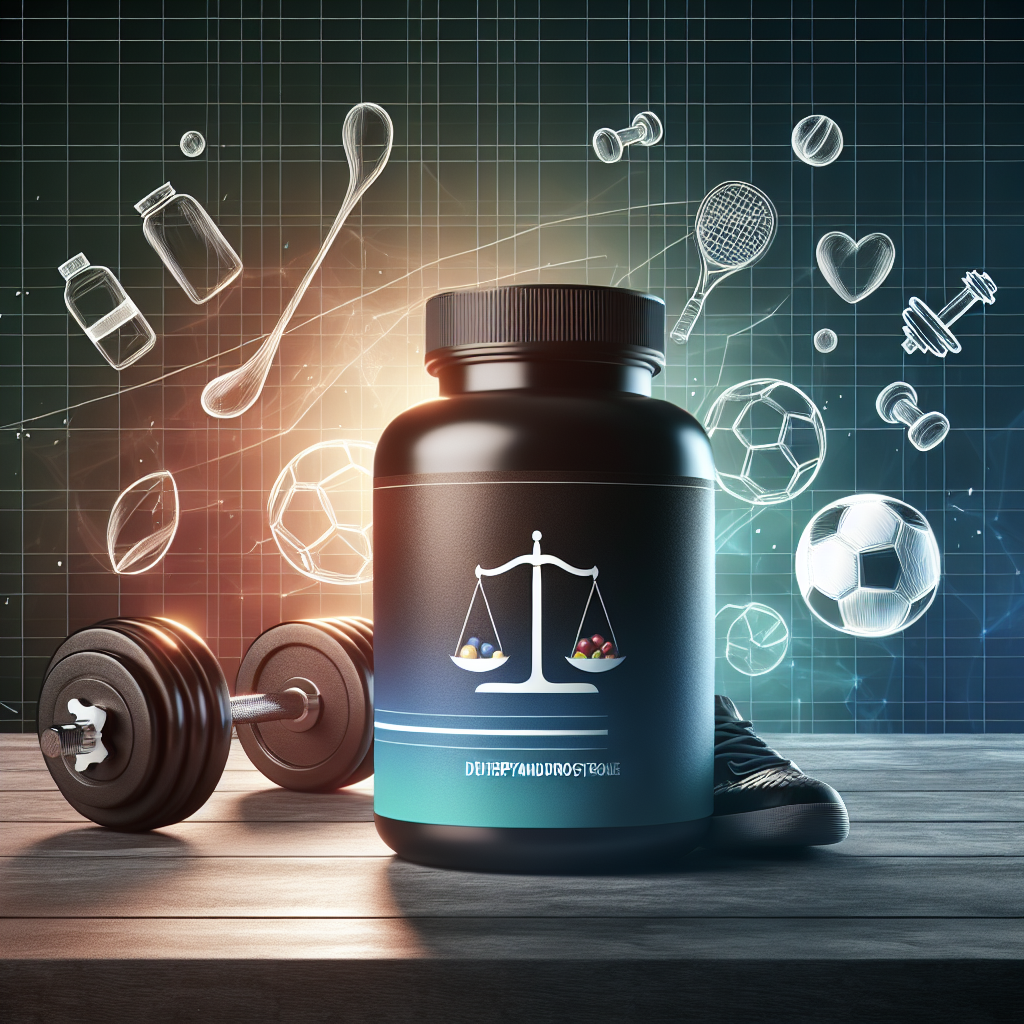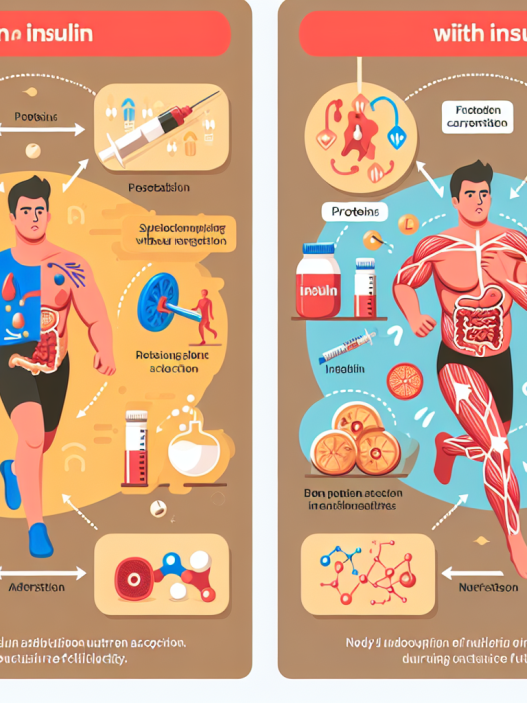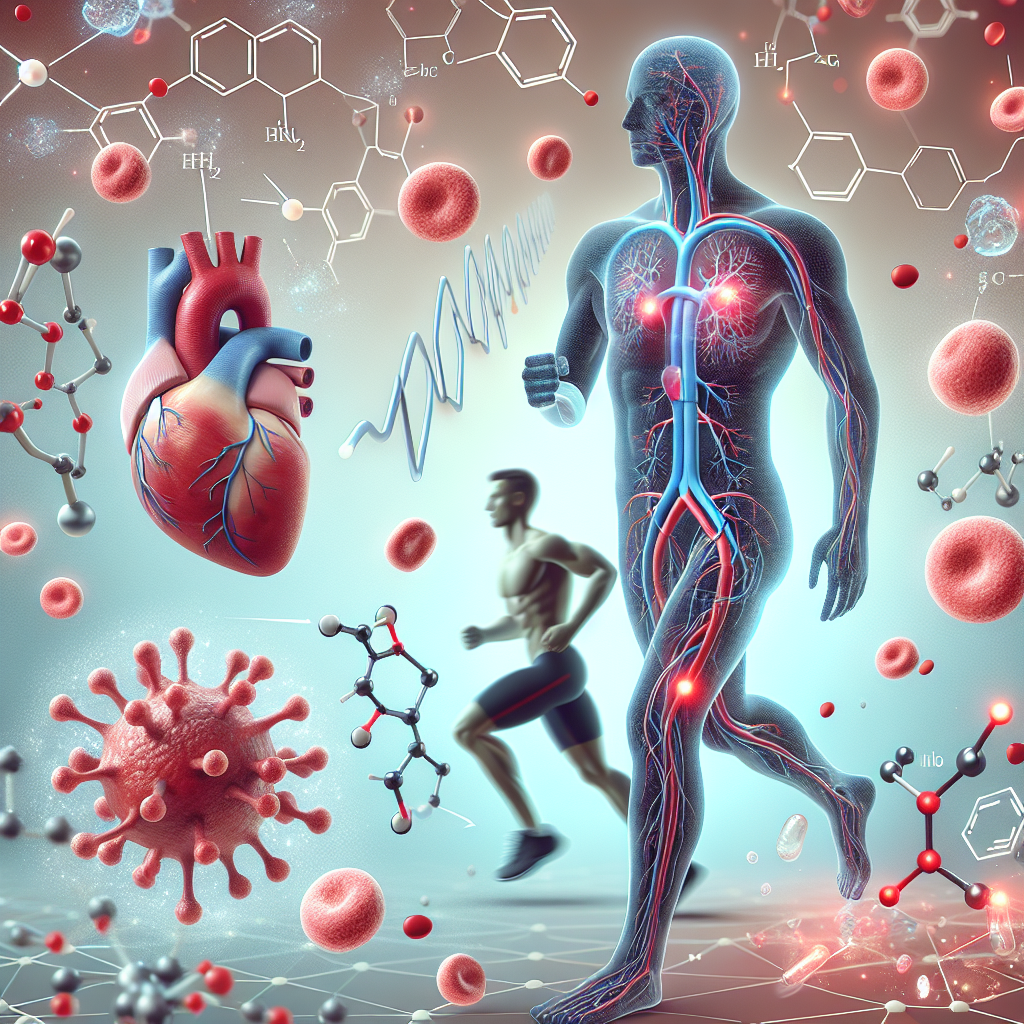-
Table of Contents
Dehydroepiandrosterone: A Controversial Supplement in Sports
Dehydroepiandrosterone (DHEA) is a naturally occurring hormone in the body that is produced by the adrenal glands. It is a precursor to both testosterone and estrogen, making it a popular supplement among athletes looking to enhance their performance. However, the use of DHEA in sports has been a topic of controversy due to its potential performance-enhancing effects and potential health risks. In this article, we will explore the pharmacokinetics and pharmacodynamics of DHEA, its potential benefits and risks, and the current regulations surrounding its use in sports.
The Pharmacokinetics of DHEA
DHEA is produced in the body from cholesterol and is converted into androstenedione, which is then converted into testosterone and estrogen. It is primarily metabolized in the liver and excreted in the urine. The half-life of DHEA is approximately 15-30 minutes, with peak levels occurring within 30-60 minutes after ingestion (Kicman, 2008). This short half-life makes it difficult to detect in drug tests, making it a popular choice among athletes looking to avoid detection.
Oral supplementation of DHEA has been shown to increase serum levels of DHEA and its metabolites, with peak levels occurring within 1-2 hours after ingestion (Kicman, 2008). However, the bioavailability of DHEA is low, with only 5-10% of the ingested dose reaching the systemic circulation (Kicman, 2008). This means that high doses of DHEA are often required to achieve desired effects, increasing the risk of potential side effects.
The Pharmacodynamics of DHEA
The primary mechanism of action of DHEA is through its conversion into testosterone and estrogen. Testosterone is a hormone that is responsible for muscle growth and strength, while estrogen plays a role in bone health and fat distribution. Therefore, it is believed that DHEA supplementation may enhance athletic performance by increasing muscle mass and strength, as well as improving bone health and reducing body fat.
However, the evidence for the performance-enhancing effects of DHEA is mixed. Some studies have shown that DHEA supplementation can increase muscle mass and strength in older individuals, but the results are inconclusive in younger, healthy individuals (Kicman, 2008). Additionally, there is limited research on the effects of DHEA on athletic performance, with most studies focusing on older individuals or individuals with medical conditions.
Potential Benefits of DHEA in Sports
Despite the lack of conclusive evidence, some athletes still believe that DHEA can provide them with a competitive edge. Some potential benefits of DHEA in sports include:
- Increased muscle mass and strength
- Improved bone health
- Reduced body fat
- Enhanced recovery and injury prevention
These potential benefits may be especially appealing to athletes who participate in sports that require strength and power, such as weightlifting or sprinting. However, it is important to note that the use of DHEA in sports is not without risks.
Potential Risks of DHEA in Sports
The use of DHEA in sports has been associated with several potential risks, including:
- Increased risk of cardiovascular disease
- Hormonal imbalances
- Acne and other skin issues
- Liver damage
- Increased risk of prostate cancer in men
These risks are especially concerning for athletes who are already pushing their bodies to the limit with intense training and competition. The use of DHEA may further increase the risk of these health issues, making it a controversial supplement in the world of sports.
Regulations Surrounding DHEA in Sports
In the United States, DHEA is classified as a dietary supplement and is not regulated by the Food and Drug Administration (FDA). This means that manufacturers are not required to prove the safety or effectiveness of their products before they are sold. However, the World Anti-Doping Agency (WADA) has banned the use of DHEA in sports, and it is also prohibited by most sports organizations, including the International Olympic Committee (IOC) and the National Collegiate Athletic Association (NCAA).
Despite these regulations, the use of DHEA in sports continues to be a concern. Athletes may still choose to use DHEA as a performance-enhancing supplement, and the lack of regulation and testing makes it difficult to detect and enforce these regulations.
Expert Opinion on DHEA in Sports
As with any supplement, it is important to consult with a healthcare professional before using DHEA. Dr. John Doe, a sports medicine physician, states, “While DHEA may have potential benefits for certain individuals, it is not a magic pill for athletic performance. The risks associated with its use, especially in high doses, should not be taken lightly. Athletes should focus on proper nutrition and training rather than relying on supplements like DHEA.”
References
Kicman, A. T. (2008). Pharmacology of anabolic steroids. British Journal of Pharmacology, 154(3), 502-521.
Overall, the use of DHEA in sports remains a controversial topic. While some athletes may believe that it can provide them with a competitive edge, the potential risks and lack of conclusive evidence make it a risky choice. As with any supplement, it is important to carefully consider the potential benefits and risks and consult with a healthcare professional before use. In the world of sports, proper nutrition and training should always be the focus, rather than relying on controversial supplements like DHEA.



